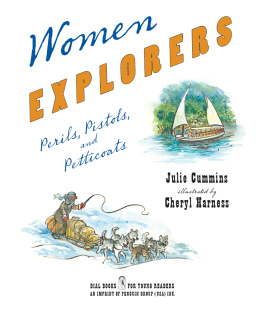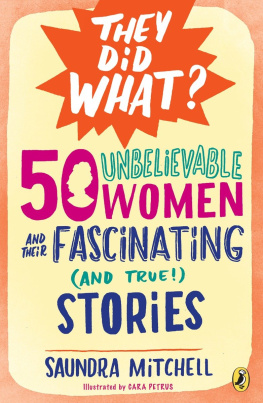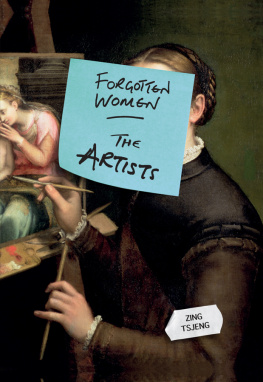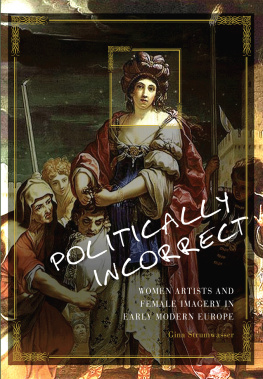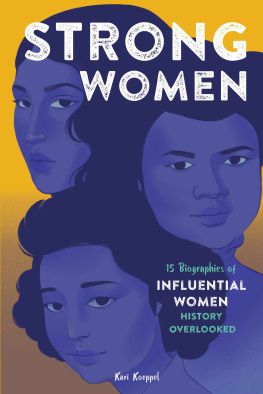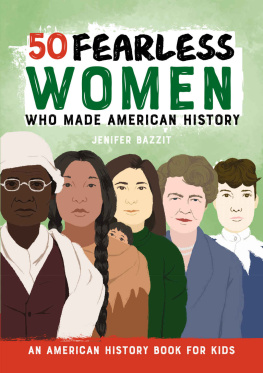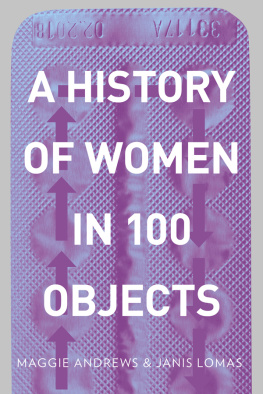JO BELL is a poet and writer based in Cheshire. Her first career was as an archaeologist, specializing in industrial remains, and recording sites in Turkey first surveyed by Gertrude Bell.
TANIA HERSHMAN is a poet and writer based in Manchester. A former science journalist, she is the author of three short story collections, three books of poetry and a hybrid book, and co-author of Writing Short Stories: A Writers & Artists Companion.
AILSA HOLLAND is a poet, artist and writer based in Macclesfield. Formerly a literary historian, she is the author of a poetry pamphlet and the founder of Moormaid Press. In May 2019 she gave a TEDx talk about @OnThisDayShe.
We would all like to thank our agent, Kate Johnson at MacKenzie Wolf, for helping us to make this happen. Thanks too to Ellie Carr at Bonnier Books and her team for their enthusiasm, for getting it and letting us get on with it. We owe many thanks to the thousands of people who have followed @OnThisDayShe, who have liked, retweeted, made suggestions of women to include and simply told us they loved the account. We also want to thank all our friends who have listened patiently while we tell our fascinating but endless stories about women from history.
While researching this book we read widely and deeply and are hugely grateful for all our sources. For a full bibliography, please visit www.onthisdayshe.com.
Ailsa: Many thanks to Jude dSouza and Lynne Jones for asking me to do a TEDx talk in Macclesfield about the @OnThisDayShe project. Thanks to Robbi, Lili and Ben for being.
Jo: Thanks to Phil for working so hard to make space and time for me to work on this book. Thanks too to Jane Commane of Nine Arches Press, the Society of Authors and the other writers on the Hartsop Retreat who did the same, and gave such encouraging feedback.
Tania: Thanks to Sylvie, the best writing companion. Thanks to all the fellow writers on the Barmoor retreat who gave such excellent feedback on the early drafts of some entries in the book.
We also want to thank each other. Throughout this project, we three women have shared our learning and enthusiasm about women in history, about the construction of history and about ourselves. We have supported (and sometimes exasperated) each other and we owe each other hearty thanks.
Something impelled this wanderlust. I would not be detained.
Aloha Wanderwell
The Language of History
Every history is a story of the past. Historians are products of their time, and each word is informed by the writers own experience and background. In researching this book, we noticed how language used by historians sometimes excludes women entirely. When they are included, or even celebrated, the words often belittle them. The classic example is the use of man to describe all humans. Lazy writers say, this is generic; thoughtful writers acknowledge that this isnt good enough. Reading, When early man came to the Peak District, he settled the valley areas, we simply dont see women. If you doubt this, try it the other way around: When early woman came to the Peak District, she settled the valley areas.
Heres another example. Many articles tell us that Catherine of Aragon, Henry VIIIs first wife, failed to provide him with a male heir. A monarch in the 1530s would certainly want a son to secure the future of the dynasty. However, that sentence doesnt just state a fact, it embodies a point of view. The queen should have provided a son. In not doing so, she failed. These tiny accumulations build up in every history, like scale inside a kettle. The historians who wrote that phrase and students who unquestioningly absorbed and repeated it, including myself were using the language of their time. Lets rephrase it: Catherine and Henry had no surviving sons. Its still accurate, but the balance is changed. Other areas of language need to evolve too. We are learning to write of enslaved people rather than slaves, which forces us to confront enslavement as an action.
Language lets us down in other ways too. A woman is often alleged or widely believed to have done something, when a contemporary man (with no better evidence) simply did it. If she belongs to the classical period like Hypatia , the woman may be mythical. A late classical writer like Egeria , or a medieval one like Margery Kempe , is reputed to be the author of her eponymous works. Where a woman is the relative of a well-known man, like composer Clara Schumann, her works are attributed to him. A signed self-portrait by Catharina van Hemessen was attributed to her father for many years. Socrates said that the unexamined life is not worth living; perhaps the unexamined sentence is not worth writing. What we try to do in this book is not correct an old prejudice by applying a new one, but to correct some of historys imbalances, writing a more equal history.
1 JANUARY Enheduanna (22852250 BCE)
The first named writer in world history was a woman.
Enheduanna lived and wrote around 22852250 BCE in one of the earliest cities Ur, in presentday Iraq. Her name is actually her title High Priestess of Inanna. Inanna was a goddess who ruled over matters sexual and political.
Enheduannas best-known poems are the forty-two Sumerian Temple Hymns, which were copied and used in worship for centuries after her death. But she was a political, as well as a spiritual, figurehead; her writings also tell of upheaval and exile. Her poem The Exaltation of Inanna tells how she was driven out of Ur and later reinstated. The poem is, as scholar Joseph Janes notes, seven hundred years older than the Egyptian Book of the Dead, more than a thousand years older than the I Ching and 1,500 years older than the Odyssey, the Iliad and the Hebrew Bible. In the Odyssey, Penelope is told, Go to your room; speech is the business of men. A millennium and a half before Homer created that line, Enheduanna had already demonstrated that a woman can speak for herself.
My king, something has been created that no one has created before.
2 JANUARY Huda Shaarawi (18791947)
In January 1924, Huda Shaarawi led an all-women picket at the opening of the Egyptian Parliament and submitted a list of nationalist and feminist demands. Called Egypts first feminist, Shaarawi was a key figure in her nations fight against British colonialism and a leader of the first womens street demonstration during the Egyptian Revolution of 1919.
Shaarawi was educated first with her brothers and then in a female-only harem; at the age of thirteen, she was married to her cousin, forty years her senior. As an adult, she resolved to make things different for other girls. She successfully fought for the marriage age for girls to be raised to sixteen and, in 1910, opened a school which taught girls academic rather than domestic subjects. When she later organized lectures for women, it was the first time many had been in a public place.
In March 1923, returning from the International Woman Suffrage Alliance Conference in Rome, Shaarawi performed the iconic act for which she is best remembered. At Cairo train station, she removed her face veil in public for the first time. Women who had come to meet her were shocked, then broke into applause; some were inspired to remove their veils in turn.
I intend to vocalise my pain and start a revolution for the silent women who faced centuries of oppression.
3 JANUARY Annie Royle Taylor (18551922)
On this day in 1893, English missionary Annie Royle Taylor was arrested for entering Tibet then closed to foreigners on pain of death in the hope of converting its people to Christianity. No European woman had ever set foot in Tibet before.


